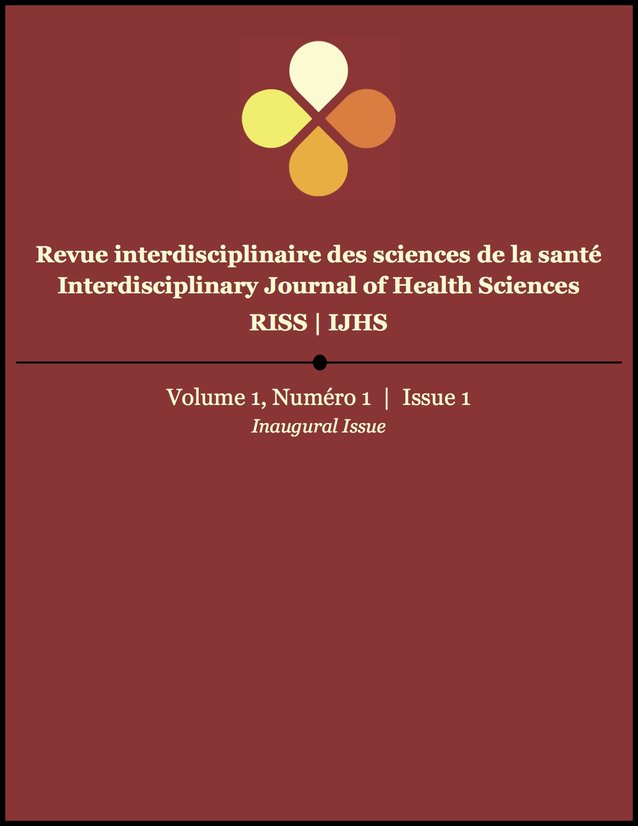A Review of the Effects of Psychological Interventions on the Quality of Life for Children with Atopic Dermatitis
DOI :
https://doi.org/10.18192/riss-ijhs.v1i1.1531Mots-clés :
N/ARésumé
Atopic Dermatitis (AD) is a psychologically debilitating disease due to its embarrassing skin lesions and pruritic nature which disturb the quality of life (QOL) of the patients. Even though children are primarily affected, caregivers can also be affected due to being the first line of care for others who are inflicted. This review focuses on randomized control trials which investigated the use of non-chemical forms of treatment to improve QOL and disease severity in children. A search of the PubMed database identified six studies that met the inclusion criteria. The studies were ranked from most rigorous trial to least. Various forms of education as an intervention were used. Conversely, the viewing of a humorous film was tested to examine if it had an impact on QOL. Education intervention versus no education at all showed that the intervention group had a larger decrease in disease severity than the control group. The form of education as a single consult with an AD educated nurse showed no difference between the control and the intervention group. Comparison of nurse-led clinics with the dermatologist-led clinics indicated that the nurse-led clinics were more successful. Viewing humorous films before bedtime was demonstrated as a successful means of reducing night-time awakenings. Also specific AD education versus routine education and consultations showed improvement in both groups. Finally, AD video education versus direct parental teaching concluded that the video-education was more effective. Although the studies show that any form of education intervention is better than none, the methodological assessment of the studies showed that four of the studies were not rigorous enough or were not described at all. Further studies must be conducted in a more methodologically sound manner for the results to be considered replicable and valid.
Références
Boguniewicz, M., & Beltrani, V. (2002). Chapter 8: Atopic dermatitis and contact dermatitis. In Adelman, D, Casale, T & Corren, J (Eds.), Manual of allergy and immunology (4th ed., pp.165-175). Philadelphia: Lippincott Williams & Wilkins.
Chida,Y., Steptoe, A., Hirakawa, N., Sudo, N., & Kubo, C. (2007). The effects of psychological intervention on atopic dermatitis. A systematic review and meta-analysis. International Archives of Allergy & Immunology, 144(1), 1-9. doi: 10.1159/000101940
Chinn, D. J., Poyner, T., & Sibley, G. (2002). Randomized controlled trial of a single dermatology nurse consultation in primary care on the quality of life of children with atopic eczema. The British Journal of Dermatology, 146(3), 432- 439. doi: 10.1046/j.1365-2133.2002.04603.x
Ersser, S. J., Latter, S., Sibley, A., Satherley, P. A., & Welbourne S. (2007). Psychological and educational interventions for atopic eczema in children. Cochrane Database of Systematic Reviews, (3), CD004054. doi: 10.1002/14651858.CD004054.pub2
Grillo, M., Gassner, L., Marshman, G., Dunn, S., & Hudson, P. (2006). Pediatric atopic eczema: The impact of an educational intervention. Pediatric Dermatology, 23(5), 428-436. doi: 10.1111/j.1525-1470.2006.00277.x
Hoare, C., Li Wan Po, A., & Williams, H. (2000). Systematic review of treatments for atopic eczema. Health Technology Assessment, 4(37), 1-191. Retrieved from http:// dx.doi.org/10.3310/hta4370
Jadad, A. R., Moore, R. A., Carroll, D., Jenkinson, C., Reynolds, D. J. M., Gavaghan, D. J., & McQuay, H. J. (1996). Assessing the quality of reports of randomized clinical trials: is blinding necessary? Controlled Clinical Trials, 17(1), 1–12. doi: 10.1016/0197-2456(95)00134-4
Jones, S. M., Buchanan, A., & Burks, A. W. (2007). Chapter 13: Atopic dermatitis. In Lieberman P., & Anderson J. (Eds.), Allergic diseases: Diagnosis and treatment (3rd ed., pp. 218- 219, 246). Totowa, N.J.: Humana Press.
Kimata, H. (2007). Viewing humorous film improves night-time wakening in children with atopic dermatitis. Indian Pediatrics, 44(4), 281-285.
Moore, E. J., Williams, A., Manias, E., Varigos, G., & Donath, S. (2009). Eczema workshops reduce severity of childhood atopic eczema. The Australasian Journal of Dermatology, 50(2), 100-106. doi: 10.1111/j.1440- 0960.2009.00515.x
Niebel, G., Kallweit, C., Lange, I., & Folster-Holst, R. (2000). Direct versus video-aided parent education in atopic eczema in childhood as a supplement to specialty physician treatment. A controlled pilot study. [Direkte versus videovermittelte Elternschulung bei atopischem Ekzemim Kindesalter als Ergänzung fachärztlicher Behandlung Eine kontrollierte Pilotstudie] Der Hautarzt, 51(6), 401- 411.
Staab, D., Rueden, U., Kehrt, R., Erhart, M., Wenninger, K., Kamtsiuris, P., & Wahn, U. (2002). Evaluation of a parental training program for the management of childhood atopic dermatitis. Pediatric Allergy and Immunology, 13 (2), 84-90. doi: 10.1034/j.1399-3038.2002.01005.x
Staab, D., Diepgen, T. L., Fartasch, M., Kupfer, J., Lob-Corzilius, T., Ring, J., ... Gieler, U. (2006). Age related, structured educational programs for the management of atopic dermatitis in children and adolescents: Multicentre, randomized controlled trial. British Medical Journal, 332 (7547), 933-938. Retrieved from http://dx.doi.org/10.1136/bmj.332.7547.933
Téléchargements
Publié-e
Numéro
Rubrique
Licence
- Tous les auteurs dont l’article est publié dans la RISS en conserveront les droits.
- Les auteurs accordent à la RISS le droit d’être la première à publier les articles qui lui sont soumis.
- Tous les articles publiés dans la RISS sont autorisés en vertu d’une licence Creative Commons Attribution à être circulé si les auteurs et la revue de la publication originale sont reconnus.
- La RISS est publiée en ligne et imprimée. La RISS n’est pas responsable de l’utilisation non autorisée du contenu publié sous forme électronique ou imprimée.
- La RISS retient les droits de distribution de tout le contenu.
- Les auteurs, et non la RISS, sont responsables d’avoir obtenu les permissions nécessaires concernant les travaux cités.


